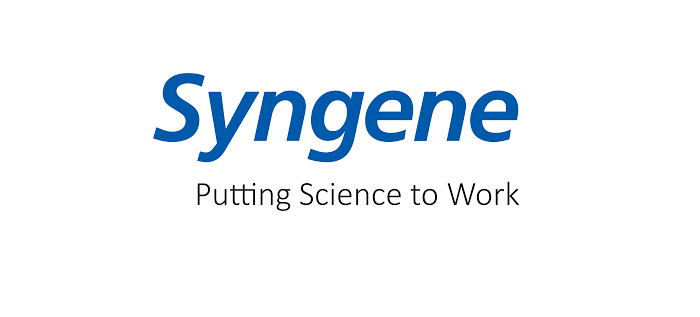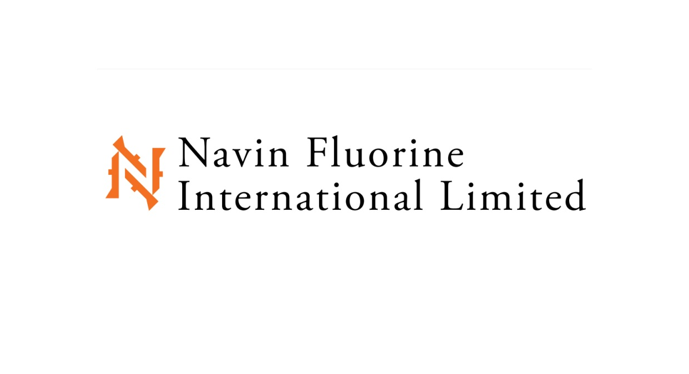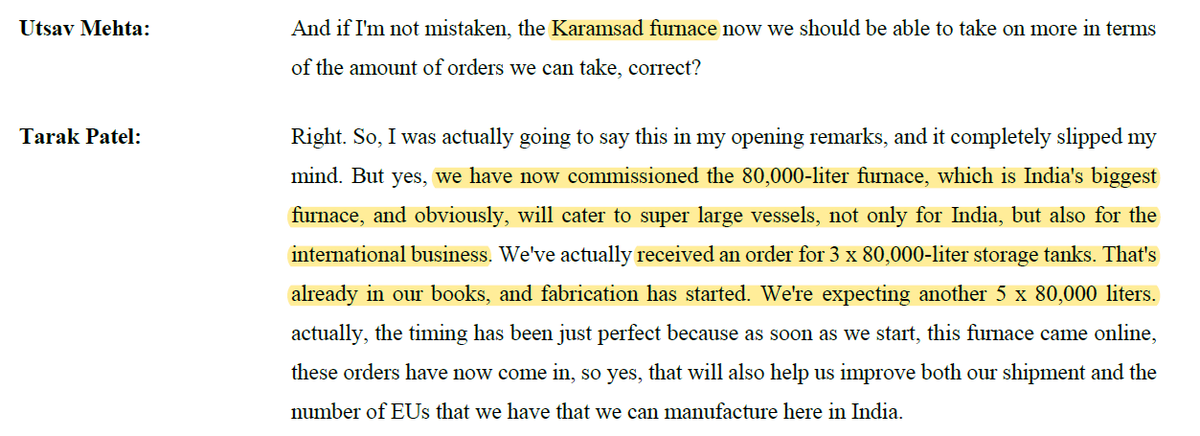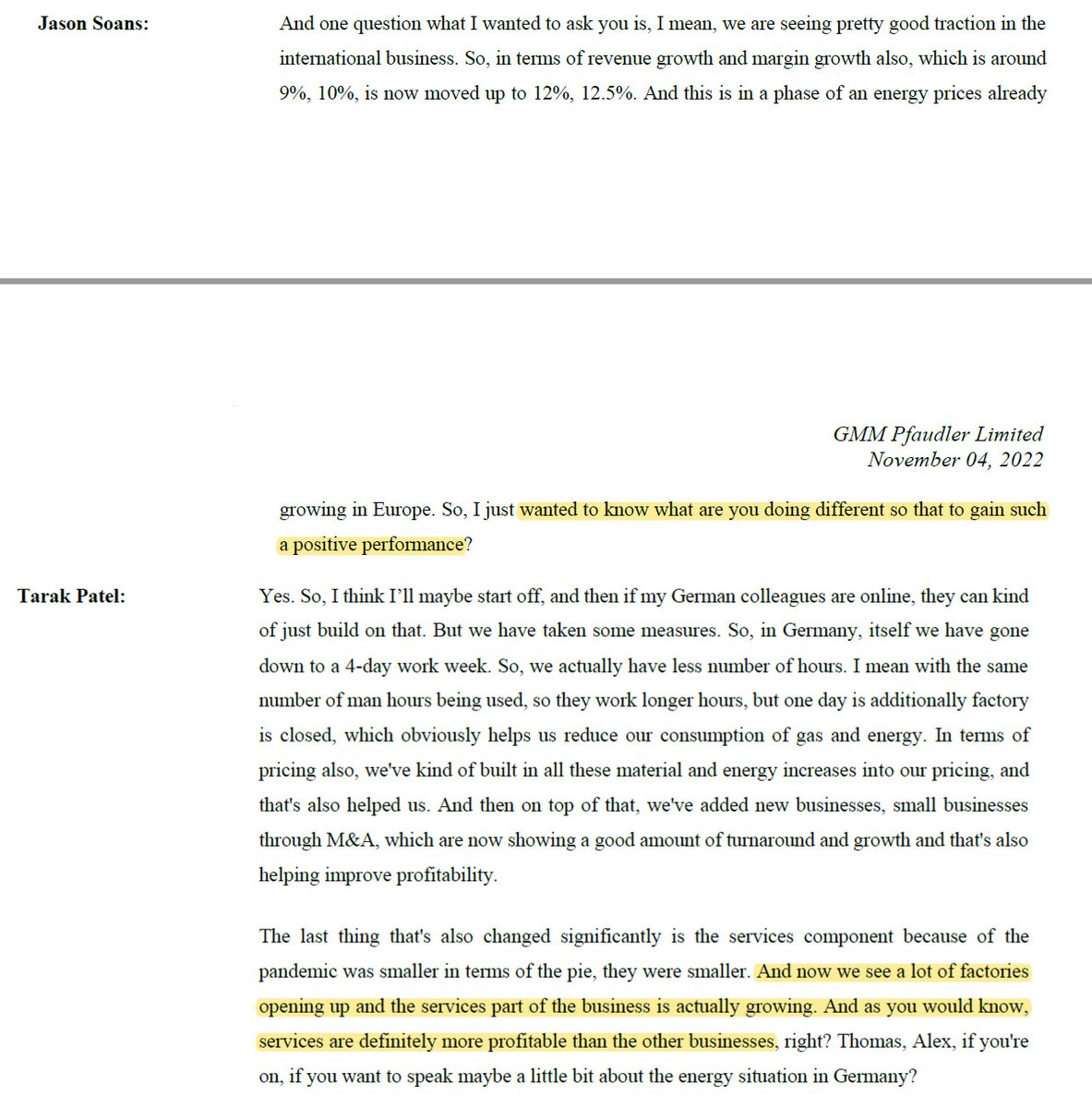
Detailed Analysis on the business of #Syngene International - India’s largest listed #CRO
CMP - ₹590
Like and retweet for maximum reach!!
CMP - ₹590
Like and retweet for maximum reach!!

1. Company Overview
-Syngene provides end-to-end discovery, development and manufacturing services to innovative pharma companies involved in the development of patented drugs.
-Syngene was established in 1993 as a subsidiary of Biocon with the objective of providing contract
-Syngene provides end-to-end discovery, development and manufacturing services to innovative pharma companies involved in the development of patented drugs.
-Syngene was established in 1993 as a subsidiary of Biocon with the objective of providing contract
research services to overseas customers. It was India’s first CRO.
-In 2015, the company was spun off from Biocon through an IPO and became a separately listed entity
-In 2015, the company was spun off from Biocon through an IPO and became a separately listed entity

-Today, Syngene is the largest listed CRO in India who deals exclusively in novel drugs.
-They have also added significant manufacturing capacity in the past few years to provide their clients with a completely integrated end-to-end CRAMS offering.
-They have also added significant manufacturing capacity in the past few years to provide their clients with a completely integrated end-to-end CRAMS offering.
4. Dedicated R&D Centers
-In this segment, Syngene provides ring-fenced infrastructure and dedicated scientists to global pharma companies.
-They currently have 3 large pharma companies as clients - Bristol Myers Squibb, Amgen and Baxter
-In this segment, Syngene provides ring-fenced infrastructure and dedicated scientists to global pharma companies.
-They currently have 3 large pharma companies as clients - Bristol Myers Squibb, Amgen and Baxter

-They provide these clients with a customized laboratory facility which operates as an extension of the company’s own internal R&D division. A dedicated team of scientists is assigned to these projects to assist with the client’s R&D requirements.
-The dedicated R&D centers mostly provide discovery services to clients and some development services.
5. Discovery Services
-Under Discovery Services, the company provides early stage research that is required before the drug goes into clinical trials.
5. Discovery Services
-Under Discovery Services, the company provides early stage research that is required before the drug goes into clinical trials.

-They provide a wide range of services beginning from target identification to delivery of drug candidates for clinical development.
-They have a wide range of capabilities in chemical drugs, biologic drugs, drug conjugates, cell and gene therapy, PROTACs, safety assessments and
-They have a wide range of capabilities in chemical drugs, biologic drugs, drug conjugates, cell and gene therapy, PROTACs, safety assessments and
research informatics
6. Development and Manufacturing Services
-In the development and manufacturing vertical, the company provides manufacturing and development services for drugs in clinical trials and commercialized stages for both chemical and biological molecules.

6. Development and Manufacturing Services
-In the development and manufacturing vertical, the company provides manufacturing and development services for drugs in clinical trials and commercialized stages for both chemical and biological molecules.


-Under development, the company provides services like API and drug product development, safety and efficacy testing of the drug candidate and cGMP manufacturing for clinical supplies and registration batches.
-Under manufacturing, the company is involved in the manufacturing and
-Under manufacturing, the company is involved in the manufacturing and
supply of commercialized molecules for both chemical and biological molecules.
-The revenue from manufacturing services is not very significant currently as they have very few commercialized products
-The revenue from manufacturing services is not very significant currently as they have very few commercialized products
7. Service Model
-Syngene has different types of pricing models so that they can offer their clients flexibility and customization.
-Their 3 main service models are Fee for Service, Full Time Equivalent and Dedicated R&D centers.
-Syngene has different types of pricing models so that they can offer their clients flexibility and customization.
-Their 3 main service models are Fee for Service, Full Time Equivalent and Dedicated R&D centers.

-In Fee for Service, Syngene is paid to provide a one time service for a client. For example, if a client wants a particular test on one of their drug candidates, Syngene will do that particular test and charge the client for it.
-In Full Time Equivalent, the innovator will
-In Full Time Equivalent, the innovator will
define the scope of services and the number of scientists they require. These scientists will work full time for that particular client and deliver the services needed. The contracts are renewed annually in this model and the client can choose to expand the number of scientists
and the scope of services as the project advances.
-The third model is the Dedicated R&D center model discussed previously. In this model, Syngene provides the client ring-fenced infrastructure and dedicated scientists exclusively for that client. The contracts in this model are
-The third model is the Dedicated R&D center model discussed previously. In this model, Syngene provides the client ring-fenced infrastructure and dedicated scientists exclusively for that client. The contracts in this model are
usually about 5 to 7 years.
-Apart from the 3 main models, the company has 2 other service models - Risk Reward Model and Outcome Based Model.
-In the Risk Reward Model, the client can choose to share some of the rewards from a drug in the form of milestone payments in exchange
-Apart from the 3 main models, the company has 2 other service models - Risk Reward Model and Outcome Based Model.
-In the Risk Reward Model, the client can choose to share some of the rewards from a drug in the form of milestone payments in exchange
for lower upfront payments. So Syngene shares some of the risk of drug development and will benefit if the drug is commercialized.
-The Outcome Based Model is similar to the FFS model, but Syngene receives payment for achieving a certain outcome and not for the service itself.
-The Outcome Based Model is similar to the FFS model, but Syngene receives payment for achieving a certain outcome and not for the service itself.
For example, if a client wants a small batch of the drug manufactured for regulatory submission, they can ask Syngene to manufacture it for them. Here the client is not employing people to do specific things, they are buying a particular outcome.
8. IT Type Business
-Syngene’s business is exactly like the IT services model which works on cost arbitrage.
-Innovators need a lot of scientists to do a lot of different types of research. Syngene provides them with scientists and flexible pricing so that the innovators can
-Syngene’s business is exactly like the IT services model which works on cost arbitrage.
-Innovators need a lot of scientists to do a lot of different types of research. Syngene provides them with scientists and flexible pricing so that the innovators can
convert their fixed costs to variable costs
-Syngene’s advantage in this space is their cost effectiveness. The skilled labor pool is large in India. We add about 4 lakh English speaking Pharma graduates every year.
-The cost of a research scientist is the lowest in India at
-Syngene’s advantage in this space is their cost effectiveness. The skilled labor pool is large in India. We add about 4 lakh English speaking Pharma graduates every year.
-The cost of a research scientist is the lowest in India at
about 88,000 dollars a year which is much lower than China at 132,000 dollars. It would cost a US innovator 353,000 dollars per year to hire a research scientist in-house, whereas it would cost them 257,000 dollars to hire a US CRO.
-The innovators can thus have a team of highly
-The innovators can thus have a team of highly
paid scientists to do a lot of the innovation and outsource most of the work that is not necessarily innovating to CROs like Syngene.
9. Zoetis Deal
-Syngene recently announced a 10 year agreement with Zoetis to manufacture the biological entity for Librela (bedinvetmab). It is the first monoclonal antibody for the treatment of osteoarthritis in dogs
-Syngene recently announced a 10 year agreement with Zoetis to manufacture the biological entity for Librela (bedinvetmab). It is the first monoclonal antibody for the treatment of osteoarthritis in dogs

-Syngene was involved with the development of Librela and has now become the supplier for commercial batches.
-Syngene has stated that the deal could potentially be worth $500 million to them over the next 10 years. They have said that this deal brings opportunities to
-Syngene has stated that the deal could potentially be worth $500 million to them over the next 10 years. They have said that this deal brings opportunities to
collaborate on other drugs as well.
-In the Q2 FY23 concall, management said that the manufacturing and supply under this deal will commence on Q4 FY23.
10. Capabilities

-In the Q2 FY23 concall, management said that the manufacturing and supply under this deal will commence on Q4 FY23.
10. Capabilities


12. Capex
-The company spent 621 crores in FY22 for capital expansion.
-About 70% of this was spent on Discovery Services and Dedicated Centers. It was for adding additional capacity at their research facility in Hyderabad to house more scientists and to add more infrastructure
-The company spent 621 crores in FY22 for capital expansion.
-About 70% of this was spent on Discovery Services and Dedicated Centers. It was for adding additional capacity at their research facility in Hyderabad to house more scientists and to add more infrastructure

-About 10% was spent on Development Services, where they added a sterile fill finish facility for clinical supplies.
-Another 10% was spent on Manufacturing services where they added capacity to their biologics facility. They commissioned a new microbial facility during the
-Another 10% was spent on Manufacturing services where they added capacity to their biologics facility. They commissioned a new microbial facility during the
year and added capacity to their mammalian cell manufacturing facility.
-The remaining 10% was spent on common assets that will be used across the company like adding power grid capacity.
-The management has given a capex guidance of $100 million dollars, which is approximately
-The remaining 10% was spent on common assets that will be used across the company like adding power grid capacity.
-The management has given a capex guidance of $100 million dollars, which is approximately
750 crores for FY23.
-About 50% of this will be spent on Research Services and the other 50% will be spent on adding biologics capacity for FY24. The management wants to invest in this facility proactively as they are seeing increased demand for biologics manufacturing and a new
-About 50% of this will be spent on Research Services and the other 50% will be spent on adding biologics capacity for FY24. The management wants to invest in this facility proactively as they are seeing increased demand for biologics manufacturing and a new
Join the Micro Cap Club to watch the detailed analysis:
Check out the New Year Offer on the Micro Cap Club membership:
bit.ly/3zYY8OS
bit.ly/3zYY8OS
• • •
Missing some Tweet in this thread? You can try to
force a refresh





















